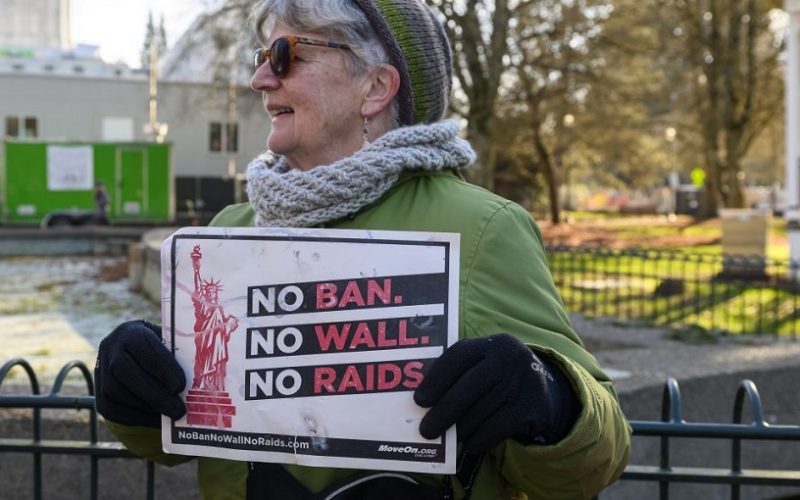Salem, OR – Oregon, along with Washington, Arizona, and Illinois, has filed a lawsuit against President Donald Trump and several of his cabinet officials over an executive order aimed at redefining birthright citizenship. The suit, which was filed in the U.S. District Court for Western Washington on Tuesday, seeks to block Trump’s order, which attempts to limit citizenship for children born in the United States to undocumented immigrants or those on temporary visas.
For over 150 years, the Fourteenth Amendment of the U.S. Constitution has guaranteed citizenship to anyone born on American soil, with few exceptions. However, Trump’s executive order, signed hours after taking office, seeks to reinterpret this constitutional provision by excluding children born to parents who are not legally in the country on a permanent basis, including those with student, work, or tourist visas.
Oregon Attorney General Dan Rayfield, a Democrat who was elected in November, joined the lawsuit, calling Trump’s move a “clear violation” of the U.S. Constitution. In a statement, Rayfield said the executive order undermines decades of legal precedent and could have devastating consequences for children born to undocumented immigrants. He argued that such a policy would “break decades of established law that has helped keep kids healthy and safe.”
The lawsuit, led by newly elected Washington Attorney General Nick Brown, also includes Arizona and Illinois, and has been filed in response to what the plaintiffs describe as an unlawful and overreaching executive order. The states are seeking a temporary restraining order to prevent the policy from being implemented. The suit follows a similar complaint filed by 18 other states, the District of Columbia, and the city and county of San Francisco in Massachusetts federal court.
The plaintiffs argue that the executive order would strip citizenship from thousands of children and deny them access to crucial services like healthcare, education, and social security benefits. These children, who would be rendered undocumented under the policy, could lose their ability to work legally, travel, vote, or receive a range of federal benefits. In Oregon alone, the lawsuit claims that around 2,500 children born in 2022 were born to mothers without legal status, with many more affected by the proposed policy.
The complaint also stresses that the order would impose financial burdens on states. The federal government currently covers a significant portion of healthcare costs for U.S. citizens through programs like Medicaid and the Children’s Health Insurance Program (CHIP). However, if children born to undocumented parents are no longer considered citizens, states would have to pick up the cost of healthcare for these children. Oregon, for example, covers all children and teenagers under the Oregon Health Plan, regardless of immigration status, as long as their families earn up to three times the federal poverty level.
Additionally, the lawsuit argues that the redefinition of citizenship would have serious implications for voter registration procedures. In Arizona, where proof of citizenship is required for voter registration, the state would need to implement new, complex systems to determine eligibility if birthright citizenship is no longer guaranteed. Similarly, Oregon’s automatic voter registration system relies on U.S. birth certificates as proof of citizenship, which could become complicated under the new policy.
The plaintiffs also raise concerns about the broader social and economic impacts of Trump’s executive order, claiming that it would create a new underclass of individuals who would be subject to detention or deportation, with their rights to essential services and opportunities severely limited.
The lawsuit is expected to have significant legal implications, as it challenges the authority of the executive branch to reinterpret a core constitutional provision. The Fourteenth Amendment has been a cornerstone of U.S. citizenship law since its ratification in 1868, and previous court rulings, including the 1898 case United States v. Wong Kim Ark, have upheld the principle of birthright citizenship.
As the legal battle unfolds, the plaintiffs are hopeful that the courts will strike down the executive order, preserving birthright citizenship and ensuring that children born in the United States continue to enjoy the rights and protections guaranteed under the Constitution.











